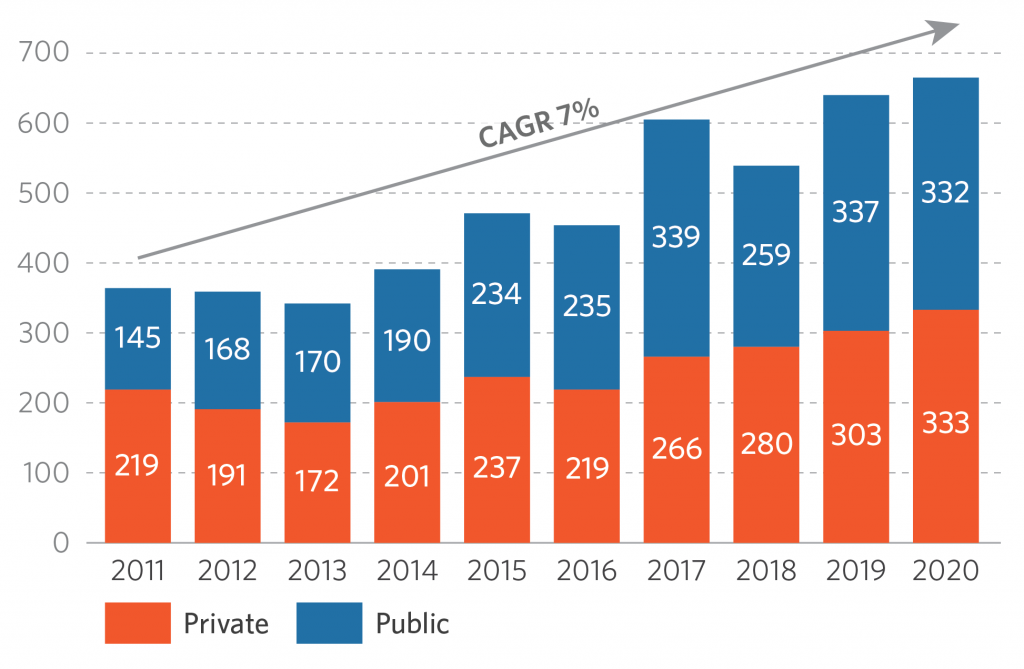
Sustainable Development Goals: In 2015, the world came together to adopt the Paris Agreement, a landmark international treaty aimed at limiting global warming to well below 2°C above pre-industrial levels, and pursuing efforts to limit the temperature increase to 1.5°C. To achieve these goals, the Agreement set a target for countries to collectively reduce greenhouse gas emissions to net zero by the second half of this century.
The progress towards achieving these goals has been slow and uneven. While some countries have made significant strides in reducing emissions, others continue to lag behind. As the impacts of climate change become increasingly severe and visible, the urgency of action has only grown.
One potential solution suggested is voluntary action by businesses and other non-state actors. The idea is that by voluntarily committing to reduce their own emissions, these actors can help fill the gap left by insufficient government action and contribute to achieving the sustainable development goals.
Climate Finance by public and private sources ($bn)

Voluntary action towards Paris Agreement goals
While voluntary action can play a role in tackling climate change, there are limits to its effectiveness. First, voluntary action by businesses and other non-state actors is unlikely to be sufficient to achieve the deep emissions reductions required to limit global warming to 1.5°C. According to the Intergovernmental Panel on Climate Change (IPCC), global emissions need to be reduced by 45% from 2010 levels by 2030 and reach net zero by around mid-century to limit warming to 1.5°C. This level of action will require significant government policy and investment.
Second, voluntary action can also be uneven and lack accountability. Without strong and consistent standards for measuring and reporting emissions reductions, voluntary commitments can be difficult to verify and may not result in the promised level of emissions reductions. Additionally, voluntary action may be limited to certain sectors or regions, leaving other sectors or regions behind.
READ I India struggles to reduce dependence on coal energy
Finally, voluntary action can also be influenced by the interests of the actors involved. For example, a company may choose to prioritize emissions reductions in areas that are easiest or cheapest to achieve, rather than in areas that are most necessary for achieving the Paris goals.
This is not to say that voluntary action is not important. It can play a role in demonstrating leadership and innovation and in building momentum for stronger government action. However, it should not be viewed as a substitute for strong government policies and investment.
Why is there a trust gap?
Despite the urgency of action on climate change, many citizens remain concerned about the effectiveness of voluntary action by businesses and other non-state actors in achieving the Paris goals.
One reason for this concern is that voluntary action may not be enough to overcome the political and economic barriers that have prevented stronger global actions on climate change. These barriers include powerful fossil fuel industries, political resistance to climate action, and a lack of investment in clean energy and infrastructure.
Without strong national policies and investment to address these barriers, voluntary action may be insufficient to achieve the deep emissions reductions required to limit global warming to 1.5°C. Another reason for concern is the potential for voluntary action to be influenced by the interests of the actors involved.
Achieving this goal will also require rapid and far-reaching transitions in energy, land use, transportation, and other sectors, which may be difficult to achieve through voluntary action alone. For example, a company may choose to prioritize emissions reductions in areas that are easiest or cheapest to achieve, rather than in areas that are most necessary for achieving the Paris goals. This could result in uneven and inadequate emissions reductions that do not align with the urgency of the climate crisis.
Finally, citizens may be concerned that voluntary action by businesses and other non-state actors could be used as a smokescreen to distract from the need for credible action. Without clear standards for measuring and reporting emissions reductions, voluntary action may be difficult to verify and may not result in the promised level of emissions reductions. This could erode public trust in the ability of businesses and other non-state actors to meaningfully address the climate crisis.
To address these concerns and garner public support for voluntary action, it is important to establish clear and consistent standards for measuring and reporting emissions reductions, as well as to hold actors accountable for their commitments. This entails ensuring transparency and public participation in the development and implementation of voluntary action initiatives, while ensuring that these initiatives are aligned with the Paris goals and contribute to a just transition to a low-carbon economy.
Furthermore, the lack of clear and consistent standards for measuring and reporting emissions reductions presents a significant challenge to achieving the Paris goals through voluntary action. Without these standards, it may prove difficult to verify the effectiveness of voluntary action initiatives and hold actors accountable for their commitments.
To achieve the Paris goals, a combination of government policy and investment, voluntary action by businesses and other non-state actors, and active engagement from civil society is necessary. It is crucial to create an enabling environment that incentivizes and rewards emissions reductions, while simultaneously holding actors accountable for their commitments. Additionally, we must act with the urgency and ambition demanded by the climate crisis.
Srinath Sridharan is a strategic counsel with 25 years experience with leading corporates across diverse sectors including automobiles, e-commerce, advertising and financial services. He understands and ideates on intersection of finance, digital, contextual-finance, consumer, mobility, Urban transformation, and ESG. Actively engaged across growth policy conversations and public policy issues.

